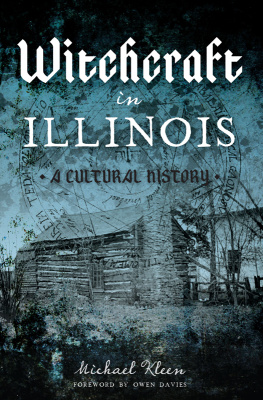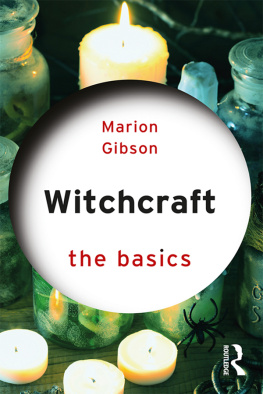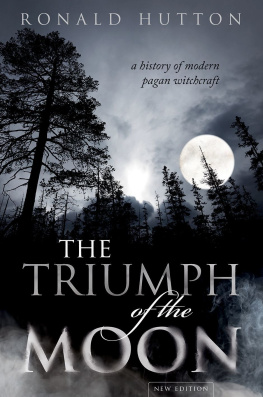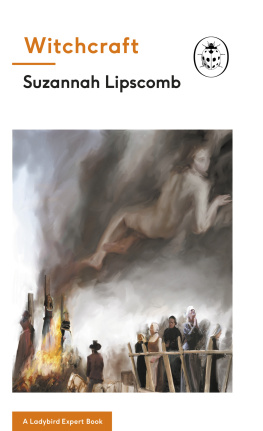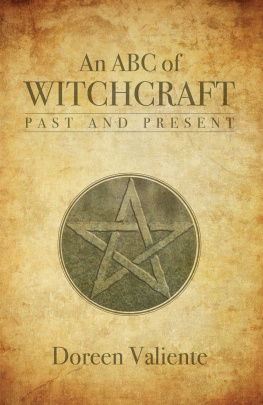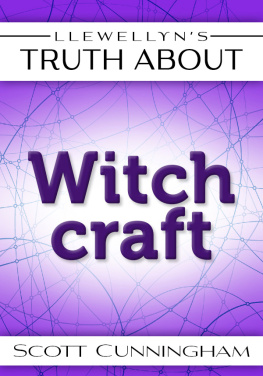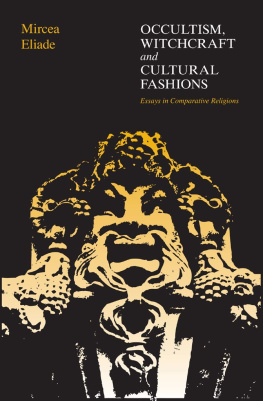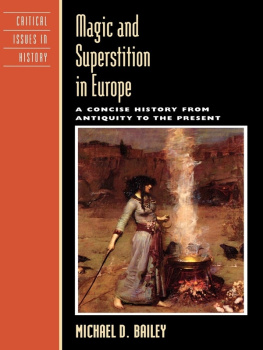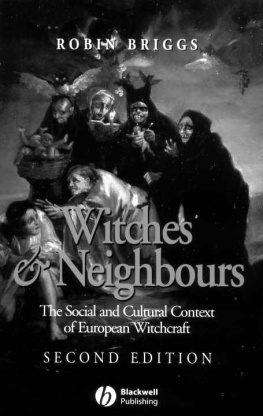Published by The History Press
Charleston, SC
www.historypress.net
Copyright 2017 by Michael A. Kleen
All rights reserved
First published 2017
e-book edition 2017
ISBN 978.1.43966.258.8
Library of Congress Control Number: 2017940922
print edition ISBN 978.1.62585.876.4
Notice: The information in this book is true and complete to the best of our knowledge. It is offered without guarantee on the part of the author or The History Press. The author and The History Press disclaim all liability in connection with the use of this book.
All rights reserved. No part of this book may be reproduced or transmitted in any form whatsoever without prior written permission from the publisher except in the case of brief quotations embodied in critical articles and reviews.
Foreword
The preoccupation with Salem as a national event has overshadowed the much longer history of witch persecution and counter magic in America. Witchcraft in colonial New England has been seen as a serious matter of study for historians, with witchcraft in the nineteenth and twentieth centuries left to folklorists. Furthermore, major scholarly folkloric or anthropological studies of European American witchcraft accusations and persecutions are few and far between. The obvious focus on witchcraft in colonial New England and the predominance of studies on the Pennsylvania Dutch have also tended to obscure the histories of witchcraft and magic in more recent American states, far from the Eastern Seaboard.
For all these reasons, Michael Kleens book is a welcome contribution to our understanding of the history of American witchcraft.
Kleens focus on Illinois highlights a number of important aspects of both the history of witchcraft and how to study it. As we move into the second half of the eighteenth century, for example, the history of American witchcraft becomes one that is integral to the stories of both African Americans as well as European Americans, and the two are deeply entwined.
This becomes apparent, furthermore, due to Kleens longue dure approach. We can understand fully the continuities and changes in ideas and practices only through looking at the influence of broader social, ethnic, political, religious and cultural shifts over time. Two of the most profound developments were industrialization and urbanization. The nineteenth-century cases researched by Kleen illustrate how witchcraft accusations were equally a part of life in rapidly expanding urban communities as in the scattered rural settlements of Illinois.
The cases and stories in this book are fascinating in their own right. Kleen draws on folklore archives, newspapers and censuses to dig deeper into the lives of the people concerned. Newspapers and censuses can provide details about individuals that folklore sources do not reveal, while the folklorists were able to capture the richness and diversity of beliefs and practices. The more such statewide studies we have, the better people will appreciate the long and complex story of witchcraft in America.
OWEN DAVIES
Professor of social history, University of Hertfordshire, author of
America Bewitched: The Story of Witchcraft after Salem (2013)
Introduction
From the fifteenth to eighteenth centuries, a moral panic over witches and witchcraft gripped Christian Europe. Witches, in league with the devil, were believed to cause maladies, ailments and disasters of every variety. They represented a threat to the moral order, and practicing witchcraft was considered a crime warranting the harshest punishments. Witch trials peaked between 1580 and 1630. In colonial America, the Salem witch trials of 1692 and 1693 marked a dramatic end to organized witch persecutions, and witchcraft ceased to be a concern of the educated elite. There was no room in the growing field of natural science for magic and the occult. Many commoners, however, continued to believe in witches, and pioneers took their beliefs with them when they moved west over the Appalachian Mountains. Since the first Illinois pioneers hollowed out bullets and filled them with silver to ward off witches, witchcraft has remained a part of Illinois history, culture and lore.
A witch, from the Old English word wicce or wicca, is a person who professes or is supposed to practice magic or sorcery, and witchcraft is his or her art. Around AD 900, wicce evolved into the Middle English word wicche, which is also the root word for wikke, bad, or wikked, wicked. Hex comes to us through the German language. A hex is a spell or charm, but it also means to bewitch or to practice witchcraft. Hexe, in German, means witch.
In English culture, a witch was usually portrayed as an elderly woman accompanied by a familiar animal spirit or companion. Commoners believed there were two kinds of witches: malevolent and benevolent, or good and bad. Bad witches caused harm, while good witches used magic to help their neighbors or break another witchs spell. On the Illinois frontier, pioneers called practitioners of benevolent witchcraft witch doctors or witch masters. Both Anglo-American pioneers and later immigrants brought with them a large body of folk magic, but practitioners of folk magic did not consider themselves to be witches or witch doctors, though their charms and techniques were often identical.
For several centuries, Europeans believed witchcraft was a serious crime, and their laws reflected that belief. History shows that many Illinoisans took witchcraft seriously, but is practicing witchcraft illegal in the state of Illinois? In short, yesthough there is no state law explicitly prohibiting the practice. In 1874, the Illinois General Assembly passed the Illinois Revised Statutes, which remained in effect until 1993. While the Illinois Revised Statutes do not contain references to witchcraft, chapter 28, Common LawAn Act to Revise the Law in Relation to the Common Law, approved on March 5, 1874, states the following:
Be it enacted by the People of the State of Illinois, represented in the General Assembly, That the common law of England, so far as the same is applicable and of a general nature and all statutes or acts of the British parliament made in aid of, and to supply the defects of the common law, prior to the fourth year of James the First, excepting the second section of the sixth chapter of 43rdElizabeth, the eighth chapter of 13thElizabeth, and ninth chapter of 37thHenry Eighth, and which are of a general nature and not local to that kingdom, shall be the rule of decision, and shall be considered as of full force until repealed by legislative authority.
The Illinois General Assembly originally passed this law on February 4, 1819, and it appeared as Section 1 of Laws of the State of Illinois (1819). Apart from replacing Roman numerals with Arabic numerals, the 1874 law was identical to the one passed in 1819. It ensured Illinoiss legal system remained anchored in English common law, on which its previous territorial laws and laws of the original thirteen American colonies were based.
The Witchcraft Act of 1604, An Act Against Conjuration, Witchcraft and Dealing with Evil and Wicked Spirits, passed by British Parliament in the first year of King James I, declared it a felony to conjure evil spirits; employ or feed evil spirits; disinter bodies or skeletons for the purpose of witchcraft, sorcery, charm or enchantment; or use witchcraft, sorcery, charm or enchantment to kill, destroy, waste, consume, pin or lame a person or any part of his or her body. The penalty for these offenses was death. It also provided that anyone practicing or exercising witchcraft, charms, enchantment or sorcery to locate hidden treasure or lost or stolen goods, provoke love, destroy cattle or goods or hurt or injure a person would be pilloried for the first offense. A second offense warranted the death penalty.



